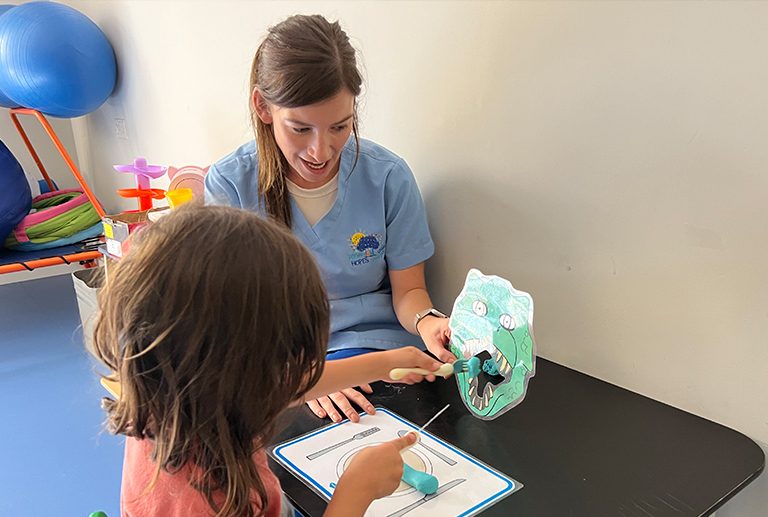Occupational therapy can be a transformative experience for children, helping them develop skills necessary for daily life and achieving their fullest strength. Preparing your child for occupational therapy is important to ensuring a positive and productive experience. The following practical tips will help you get your child ready for their therapy sessions.
Explain the purpose and benefits:
Start by explaining to your child what child occupational therapy is and why they will be attending sessions. Use simple, age-appropriate language to describe how the therapy will help them with activities they find challenging, such as getting dressed, writing, or playing. Focus on the positive aspects, such as learning new skills and having fun. This can help alleviate any anxiety and set a positive expectation for the therapy.
Familiarize them with the therapist and setting:
Before the first session, try to familiarize your child with the therapist and the therapy environment. If possible, arrange a short visit to the therapy clinic to let your child explore the space and meet the therapist. This can help reduce any feelings of unfamiliarity or fear. Some therapists may offer introductory sessions where your child can engage in playful activities, making the setting seem less intimidating.
Incorporate therapy goals into daily routine:
Integrate the goals of occupational therapy into your child’s daily activities at home. For example, if the therapy focuses on improving fine motor skills, include activities that involve drawing, building with blocks, or practicing with buttons and zippers. By practicing these skills outside of therapy sessions, you reinforce the therapy’s goals and help your child feel more confident in their abilities.
Maintain a positive attitude:
Your attitude towards therapy can greatly influence your child’s perception and experience. Show enthusiasm and encouragement about the therapy sessions. If you approach the process with a positive attitude, your child is more likely to view it as an exciting opportunity rather than a daunting task. Celebrate small successes and progress, reinforcing their efforts and achievements.
Prepare for challenges:
Occupational therapy can sometimes involve tasks that your child may initially find difficult or frustrating. Prepare them for this possibility by discussing the challenges they might face and reassuring them that it’s okay to struggle and make mistakes. Focus on that therapy is a safe space where they can practice and improve and that their therapist is there to support and guide them through any difficulties.
